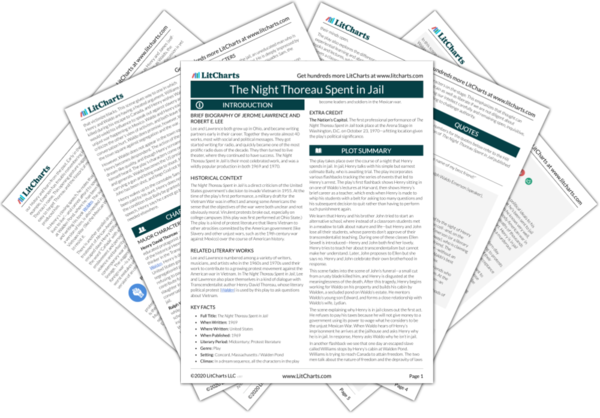The Night Thoreau Spent in Jail focuses on the importance of teaching, learning, and education, especially because both Waldo and Henry are teachers of sorts. But the play also wonders what constitutes a “real” education. The school board controls the learning that students do in school, and Henry (when he is still employed by the board) laments that their learning is limited and controlled by administrative interests. At the same time, however, Henry notes that thought can’t actually be controlled by governing bodies, no matter how hard the governing bodies try. When he is in jail, he gestures to (the notably imaginary) walls around him and victoriously notes that these walls cannot constrain his thoughts, which can sail through them like a “rock through the air.” The government can control information, but it will never be able to control thought, so long as citizens like Henry keep their minds open.
The play also explores the difference between practical experiential learning and abstract learning. Waldo learns from books and lectures, while Henry learns from “being”—he believes a classroom is an inferior place for learning. But Henry would never have become Henry without attending Harvard and being inspired by Waldo. The two of them together make up a kind of cycle of education and learning in which the “thinkers” and the “doers” both have their place.
Education, Thought, Information, and Learning ThemeTracker

Education, Thought, Information, and Learning Quotes in The Night Thoreau Spent in Jail
“Cast conformity behind you!”
“Cast…Conformity…Behind You…!”
I want to be as much as possible like Ralph Waldo Emerson.
Seems to me I’ve got several more lives to live.











